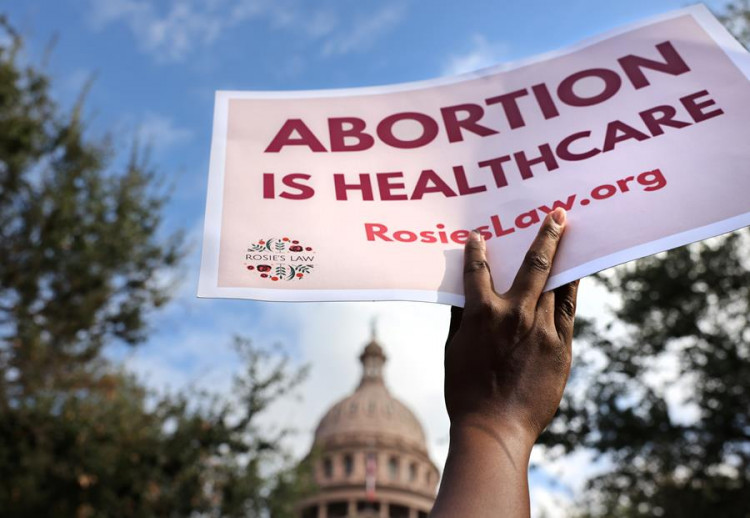The Texas Supreme Court on Friday rejected a challenge to the state's stringent abortion ban, a lawsuit initially filed by a group of women facing serious pregnancy complications. The unanimous decision by the nine Republican justices upholds one of the nation's strictest abortion laws, which only allows for abortions if the pregnant person's life is at risk.
The lawsuit, Zurawski v. Texas, was brought forth in March 2023 by five women, later expanding to include 20 women and two doctors. These plaintiffs, rather than seeking to overturn the ban, aimed to clarify the law's exceptions and increase transparency regarding when medical interventions are permissible.
Amanda Zurawski, the lead plaintiff, expressed her outrage following the court's decision. "Every day, people in Texas are being told that they have no options," Zurawski stated. "It's sickening and wrong. Our Courts should acknowledge all of our suffering and vindicate our fundamental rights to reproductive autonomy. We should not need to beg elected officials for our right to control our own bodies."
Another plaintiff, Samantha Casiano, whose fetus was diagnosed with a fatal condition, shared her emotional distress. "I was told my baby would not survive, but I was forced to continue my pregnancy and give birth anyway, then watch her pass away hours later," Casiano said. "I don't know how the court could hear what I went through and choose to do nothing."
In the summer of 2022, a district court judge had issued a temporary injunction preventing Texas from enforcing the ban against doctors who deemed an abortion necessary due to complications. The judge noted, "The Court finds that there is uncertainty regarding whether the medical exception to Texas' abortion bans ... permits a physician to provide abortion care where, in the physician's good faith judgment and in consultation with the pregnant person, a pregnant person has a physical emergent medical condition."
However, the Texas Supreme Court disagreed, asserting that the medical exemption applies strictly to cases where the pregnant person faces death or serious physical impairment. "Because the trial court's order opens the door to permit abortion to address any pregnancy risk, it is not a faithful interpretation of the law," the court stated.
The ruling aligns with a December decision where the Texas Supreme Court directed a lower court to vacate an order blocking the state's abortion ban in the case of Kate Cox, whose fetus was diagnosed with a rare chromosomal disorder. Cox ultimately left Texas to seek an abortion elsewhere after her doctor advised that continuing the pregnancy posed significant health risks.
Texas law, prohibiting all abortions except to save the life of the pregnant patient, imposes severe penalties on doctors who violate it, including the loss of medical licenses, up to 99 years in prison, and fines of at least $100,000. Critics argue that the law lacks clarity regarding permissible exceptions, leaving both doctors and patients in precarious positions.
The Center for Reproductive Rights, which filed the case on behalf of the women, expressed disappointment with the ruling. Nancy Northup, the group's president and CEO, stated, "It is enormously disappointing that most of the women who sued Texas for what happened to them have been rejected by the Court."
The Texas justices took issue with the lower court's broader interpretation of the law, which had allowed for abortions if a doctor had a "good faith" reason to believe the procedure was necessary. Instead, the high court maintained that doctors must adhere to the "reasonable medical judgment" standard, which necessitates identifying a life-threatening condition that places the pregnant person at risk of death or severe impairment without an abortion.
The decision underscores the ongoing debate about how state abortion bans apply in medical emergencies, a contentious issue since the U.S. Supreme Court's 2022 decision to overturn Roe v. Wade. The high court is also considering a Biden administration lawsuit challenging Idaho's abortion ban, which similarly exempts abortions only when a woman's life is threatened.
Manhattan District Attorney Alvin Bragg praised the jury's diligence and the prosecution team's efforts. "I did my job. Our job is to follow the facts and the law without fear or favor," Bragg stated, emphasizing the importance of impartial justice.






